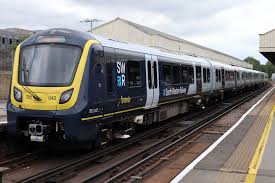Latest Developments and Services of South Western Railway

Introduction
South Western Railway (SWR) plays a crucial role in the UK’s transport network, providing connectivity for passengers traveling across the South West and into London. With its extensive operations and continuous improvements, SWR is vital for local economies, tourism, and daily commuters alike. Recent updates highlight the commitment of SWR to enhance service reliability and customer satisfaction.
Current Developments
In recent months, South Western Railway has announced several key initiatives aimed at improving stability and efficiency in operations. After experiencing disruptions earlier this year due to adverse weather conditions and strike actions, SWR has been focused on strengthening its infrastructure and upgrading services. The introduction of new trains has been a significant aspect of these improvements. Over 100 new trains have begun to enter service, providing increased capacity and enhanced comfort for passengers.
SWR has also launched various customer service enhancements, including an upgraded mobile app that facilitates easier ticket purchases and realtime updates for passengers. The app’s new features aim to help commuters navigate their journeys seamlessly, minimising travel disruptions.
Environmental Commitment
As part of its efforts to promote sustainability, South Western Railway announced its commitment to achieving net zero emissions by 2050. This goal encompasses a variety of measures, including the implementation of energy-efficient practices across its operations, investment in electrification projects, and the transition to greener technologies. Initiatives such as the recent trials of battery-operated trains illustrate SWR’s dedication to reducing its carbon footprint and doing its part in combating climate change.
Community Engagement
In addition to enhancing their services, SWR continues to engage with the communities it serves. The railway has partnered with local councils and various organisations to develop schemes aimed at increasing local station usage and making stations more accessible. Regular meetings and consultations held with community groups ensure that the concerns of local residents are heard and addressed.
Conclusion
South Western Railway remains a pivotal part of the UK’s transportation fabric, with ongoing improvements and initiatives shaping its future. Passengers can expect better services and impactful changes in the years to come. With a focus on sustainability, enhanced customer experiences, and community involvement, SWR is dedicated to continuing its evolution in the rail industry. As these changes unfold, riders can anticipate a more efficient, reliable, and environmentally friendly travel experience.









